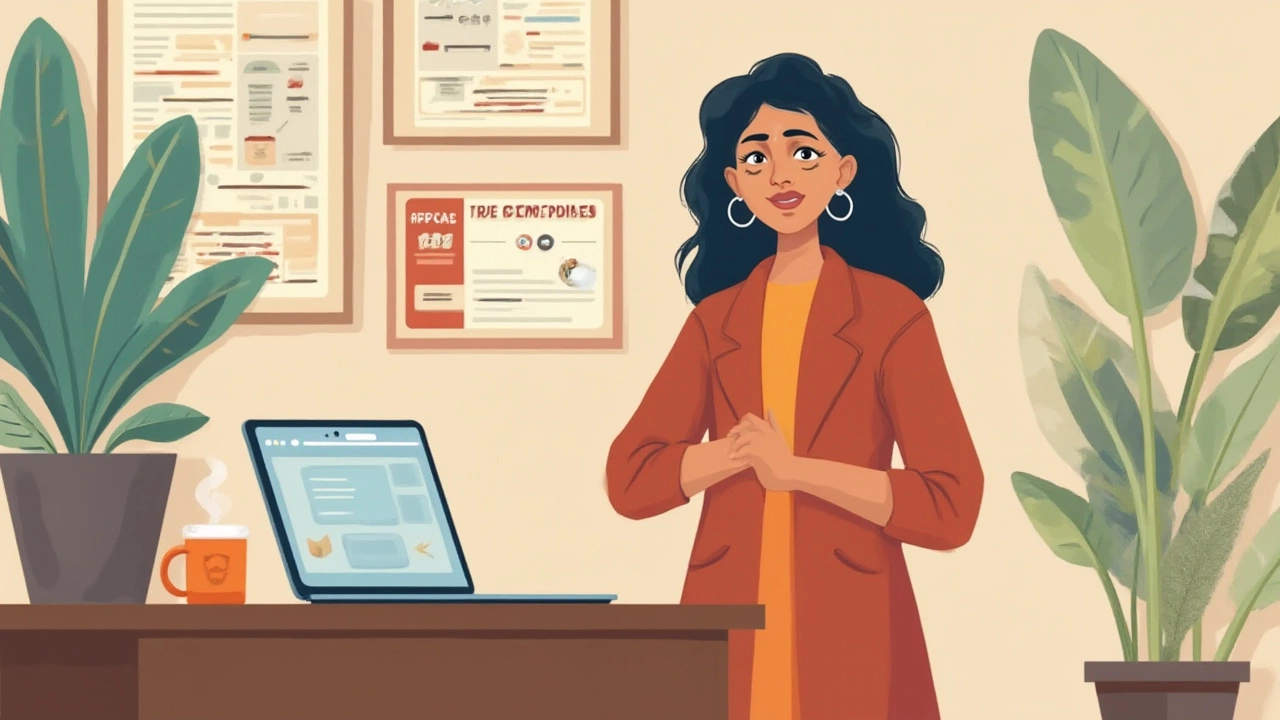Ever had that moment where you want a side-skill, sharpen your CV, or just learn something new—but your wallet says, “Mate, not today”? You’re not alone. In 2025, online education is booming, and it’s no longer a secret club. Platforms are handing out free courses and even certificates, you just need to know where to look, what’s legit, and what to avoid. Let’s break down the top websites, clear up common myths, toss in hard data, and make sure you get the most out of every click.
The Real Value of Free Online Certification: Fact vs Fiction
There’s this myth that free means “not serious” or that a free course certificate won’t ever pass a hiring manager’s sniff test. Actually, things have changed a lot. Many big employers now recognize coursework from top online platforms, especially if the course is from names they trust—like universities, Google, Microsoft, Amazon Web Services, or even governments. Coursera’s 2024 impact report, for example, showed that 78% of global recruiters considered certified online skills when shortlisting job applicants, even if the learning was free.
So, what do you get? Free courses typically cover theory, basic practice, and sometimes hands-on cases. You complete quizzes or assignments, and if you pass (and in some cases, pay a fee), you get a digital certificate. Some sites like Alison or Google’s Digital Garage give you certificates for nothing. Others, like Coursera or edX, offer free lectures but charge a nominal fee for official certification. Is it worth it? Depends on your goal. If you need proof for LinkedIn or your CV, make sure you pick sites offering real (ideally verifiable) certificates. Some certificates come with unique ID numbers, so HR can double-check their authenticity.
The other side: don’t expect a free online course to replace a full university degree—at least, not yet. But to show specific skills (like Python, digital marketing, Excel, or cloud computing), these certifications are a simple way to show you’ve got the goods. Employers now know self-starters are gold. In fact, according to a 2024 LinkedIn survey in Australia, 68% of hiring managers thought that “recent, self-driven certification” made jobseekers stand out.
The Best Websites for Free Online Certification Courses in 2025
Here’s what’s hot this year. If you want entirely free courses with certificates, or at least a real sense you aced a proper syllabus, start here:
- Coursera – The classic king. Partnered with universities like Stanford or Yale, and big tech players. Audit most courses for free; pay if you need official certification. Some promotions and “Coursera for Campus” offers often include free certs.
- edX – Similar model to Coursera, but linked with Harvard, MIT, and more. Courses are free to join; credentials cost extra. However, their “audit” track still lets you put top university study on your CV, even without a certificate.
- Alison – Maybe the best for those who want zero barriers. 100% free courses and free digital certificates. Wide range from IT to languages to health and safety.
- FutureLearn – UK-based, with heaps of university partnerships. You can access courses for free, and sometimes they run limited free certificate offers. Worth watching for monthly promos.
- Udemy – Less about top-name universities, more about practical, up-to-date skills. There are plenty of free courses (often by skilled pros), and you get a certificate, but check that the course is rated well, as quality varies. Search "free certification" directly in their filter.
- Google Digital Garage – Big for digital marketing, IT skills, and cloud basics. Most courses are 100% free and give you a Google-branded certificate after passing.
- LinkedIn Learning – Was Lynda.com. Free for the first month, loaded with career-focused content (project management, Excel, communication), and certificates can go directly on your LinkedIn profile. Watch for their free weekend events, too.
- Khan Academy – Non-profit, very student-friendly. Doesn’t give certificates, but if you’re prepping for basics (math, science, coding), you won’t find better free content.

Digging Deeper: How to Judge Course Quality and Recognition
Not all sites, and frankly not all certificates, are built equal. Here’s how to work out which are worth your effort:
1. Source credibility: Are the courses made by top universities, official companies, or recognized authorities (like Microsoft, Google, WHO, etc)? If yes, big green tick.
2. Certificate authentication: Great certificates are verifiable (a direct link or code). Alison, Coursera, LinkedIn Learning—most have this feature. Stick to these if you want HR to trust your work.
3. Up-to-date content: Fast-changing areas (like AI, digital marketing, or cybersecurity) need courses made or revised in the past two years. Udemy lists update year; Coursera and edX update most of their flagship courses annually.
4. Practical value: Look for hands-on assessments, peer-reviewed tasks, or applied projects. For example, Google’s Data Analytics Professional Certificate has you tackle real datasets.
5. Learner reviews: Don’t just go by stars—read what people say. Good courses get concrete praise about the teacher, the materials, or their impact.
| Platform | Main Focus | Certificate Free? | Verified? | Available Languages |
|---|---|---|---|---|
| Coursera | Academic, professional | No (courses free, cert paid) | Yes | Multiple |
| edX | Academic, tech | No (courses free, cert paid) | Yes | English, others |
| Alison | Workplace, skills | Yes (digital) | Yes | Multiple |
| Google Digital Garage | Digital skills | Yes | Yes | English |
| Udemy | Wide variety | Yes/No | No (PDF only) | Multiple |
Tip: If you’re aiming for jobs in a specific country or field, check what’s popular there. For instance, tech roles in Australia love seeing Google or AWS certs; healthcare appreciates anything from government or major NGOs.
Must-Know Benefits and Sneaky Downsides to Free Online Courses
Stacking up those digital skills? There are plenty of upsides. No travel, no tuition fees, self-paced study (great if you’re juggling work or family). Immediate, evergreen access is gravy—start at midnight and pause when real life calls. Plus, your network explodes—many courses run global discussion boards or peer groups.
But here’s what most don’t tell you: free courses sometimes mean less support. Paid tiers often offer mentor help, graded assignments, or extra project work. Free might also mean you’re on your own to dig deeper—if you get stuck, it’s forums or bust. And, certificates sometimes “disappear” if you don’t claim them promptly or the site removes a course.
Also, focus. With so much free content, it’s easy to sign up for five things and finish none. Be picky. Pick one or two courses aligned with your career plan or curiosity and finish them. Quality > quantity. And if you’re aiming for a proper credential (like Coursera’s Professional Certificates or edX’s MicroMasters), those usually stack credits you can sometimes use in university. But, those higher-level tracks often need a fee.
If you just want skill proof—not a formal diploma—sticking with well-known free certificates is plenty for most jobs or upskilling. Save or back up your digital certs to cloud storage, so you’re safe from site changes.

Tips to Maximise the Value of Your Free Online Certification
A certificate is only as useful as you make it. Here’s how to get the absolute most out of whatever course you finish:
- Show, don’t just tell. Add your certificates to LinkedIn, but also mention them in interviews. Tell stories about finishing a tough project or applying what you learned to real life.
- Stack related courses. Doing SEO? Follow up digital marketing with analytics, Google Ads, or content creation.
- Build a portfolio. Use course projects or quizzes as proof pieces. Put them in your LinkedIn Features or attach as work samples.
- Network with classmates. A lot of folks overlook discussion boards. Jump in, share advice, or collaborate on final projects. Who knows? Your next gig might come from a fellow student.
- Keep learning. Tech, digital skills, even “soft” skills like communication or teamwork—there’s a free course on it somewhere. The more you layer, the more valuable you get to employers.
- Always check expiration dates. Some certificates don’t last forever, especially in tech.
So, next time you feel stuck, underqualified, or just bored, there’s no reason not to pick up a new skill—sometimes in the time it takes to binge a series. The web’s packed with learning gold. Pick a well-known platform, find what fits, and let your curiosity (and your CV) do the rest.

